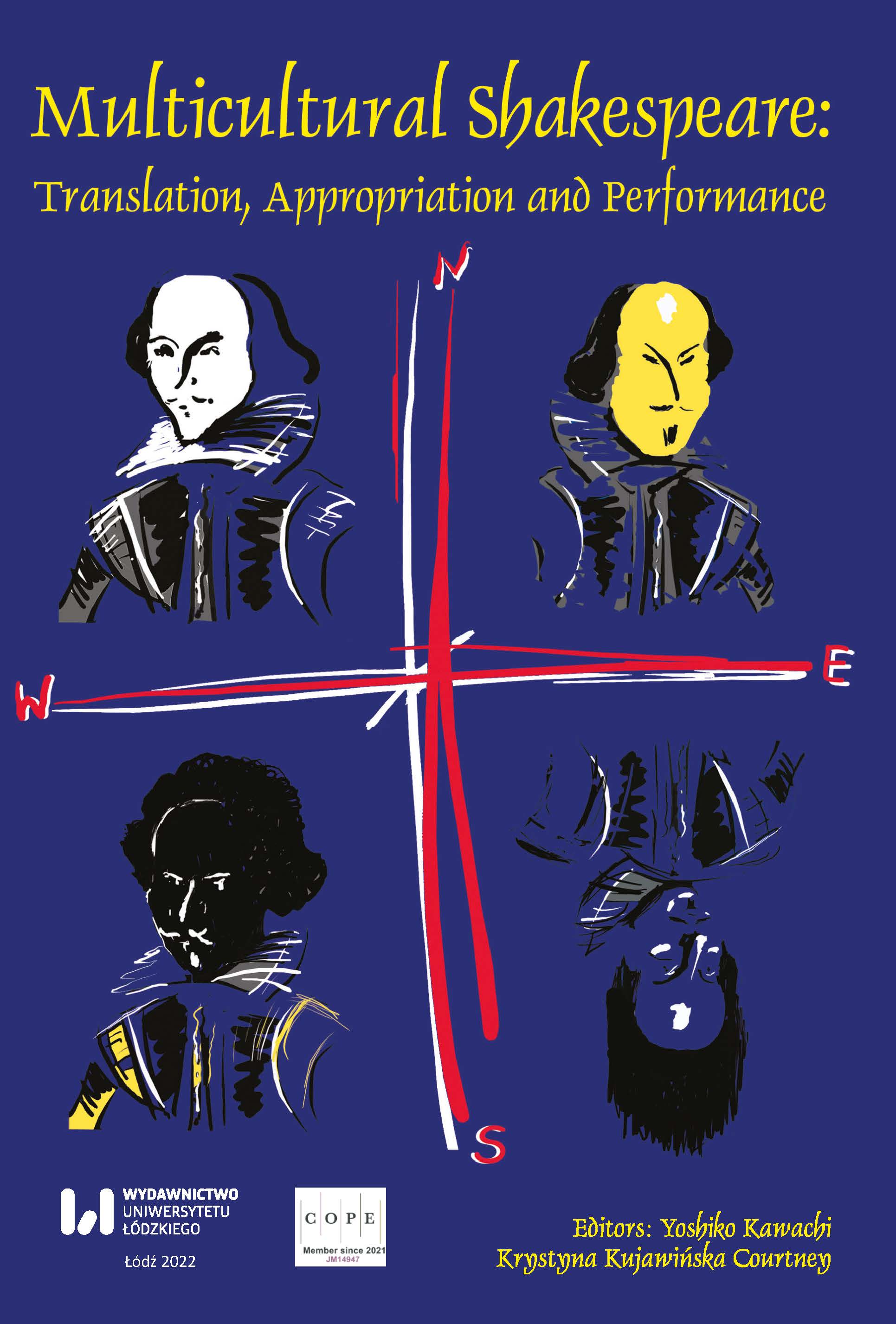Utopia, Arcadia and the Forest of Arden
DOI:
https://doi.org/10.18778/2083-8530.26.09Słowa kluczowe:
Shakespeare and utopia, arcadia/utopia and the Forest of Arden, transformative wilderness, As You Like ItAbstrakt
In Utopia (1516) Thomas More created a humorous world with a serious purpose. His invented republic was a place where existing conventions and structures did not exist, allowing the positing of alternatives. The creation of alternative worlds which satirise or critique contemporary society is a technique employed by writers in most genres, in most periods and in most cultures. More’s work is interesting for us in this context at least in part because of the likelihood that Shakespeare was familiar with it. When he created The Forest of Arden in As You Like It, for some of the characters there are utopian elements in their experience of that place. But Arden is not only a putative Utopia. Arden also contains elements of the pastoral Arcadia, again drawing upon ancient precedents, but more recently explored by English poets Edmund Spenser in The Shepherd’s Calendar (1579) and Philip Sidney in The Countess of Pembroke’s Arcadia (1593). This article interrogates the use of Utopian and Arcadian elements in the creation of one of Shakespeare’s most complicated plays. Like More’s Utopia its intention is comic. Like Sidney’s poem it is romantic, but unlike both of them it is ultimately about returning to a real world, with new perceptions of who we are, not as a society but as individuals.
Pobrania
Bibliografia
Allen, P. S., ed. Erasmi Epistolae. Oxford, 1922.
Google Scholar
Ariosto, L. Orlando Furioso. Trans. B. Reynolds. London: Penguin Classics, 2006.
Google Scholar
Farrar, Ryan. “As You Like It: The Thin Line Between Legitimate Utopia and Compensatory Vacation.” Utopian Studies 25.2 (2014): 359-383.
Google Scholar
Goldstein, Leonard. “A Note on Shakespeare’s Utopia and Sexuality.” Cahiers Élisabéthains 32.1 (1987): 69-73.
Google Scholar
Greene, R. Menaphon. Ed. G. B. Harrison. London: Basil Blackwood, 1927.
Google Scholar
Johnson, B. “To The Memory of my Beloved the Author Mr William Shakespeare.” First Folio. 1623.
Google Scholar
Lodge, Thomas. Rosalynde. Ed. W. W. Greg, London, Chatto and Windus: 1907.
Google Scholar
Lucian. A True Story. Trans. E. Hayes and S. Nimis. Oxford, Ohio: Faenum Publishing, 2011.
Google Scholar
Marlowe, C. A Passionate Shepherd to his Love. 1599.
Google Scholar
Montaigne, M. de. “Of Cannibals.” Shakespeare’s Montaigne. Ed. S. Greenblatt and P. Platt. New York: New York Review of Books Classics, 2014.
Google Scholar
Montemayor, J. de. Diana Enamorada. 1559.
Google Scholar
More, Thomas. Utopia. Ed. P. Turner, P. London: Penguin, 1972.
Google Scholar
O’Hanlon, J. Head of Education, Royal Shakespeare Company, private conversation with the author. Lund, Sweden, 2017.
Google Scholar
Paterson, R. “The Transformative Wilderness.” Theatre International 10 (2017): 1-18.
Google Scholar
Plato. The Republic. Trans. D. Lee, (2007) London: Penguin Classics.
Google Scholar
Sannazaro, J. Arcadia. 1504.
Google Scholar
Shakespeare, William. As You Like It. Open Source Shakespeare. https://www.opensourceshakespeare.org/ Accessed 23 March 2022.
Google Scholar
Shakespeare, William. Henry VI Part II. Open Source Shakespeare. https://www.opensourceshakespeare.org/ Accessed 14 November 2022.
Google Scholar
Shakespeare, William. The Tempest. Open Source Shakespeare. https://www.opensourceshakespeare.org/ Accessed 10 November 2022.
Google Scholar
Sidney, P. The Countess of Pembroke’s Arcadia. Ed. Duncan Jones. Oxford: Oxford University Press, 1999.
Google Scholar
Spenser, E. Shepheardes Calender. Ed. R. McCabe. London: Penguin Classics, 1999.
Google Scholar
Swift, Jonathan. Gulliver’s Travels. London: Penguin Classics, 2003.
Google Scholar
Virgil. Eclogues. Trans. G. Lee. London, Penguin Classics: 1984.
Google Scholar
Winson, Adam. What is a Forest? 2011. https://www.awatrees.com/2011/11/29/what-is-a-forest/ Accessed 14 November 2022.
Google Scholar
Wojciechowska, Sylwia. “Locus amoenus or locus horridus: The Forest of Arden as a Setting in As You Like It.” Studia Anglica Posnaniensia 46.3 (2011): 103-116. https://doi.org/10.2478/v10121-010-0007-4/
Google Scholar
Pobrania
Opublikowane
Wersje
- 2023-12-20 - (2)
- 2022-12-30 - (1)
Jak cytować
Numer
Dział
Licencja

Utwór dostępny jest na licencji Creative Commons Uznanie autorstwa – Użycie niekomercyjne – Bez utworów zależnych 4.0 Międzynarodowe.












